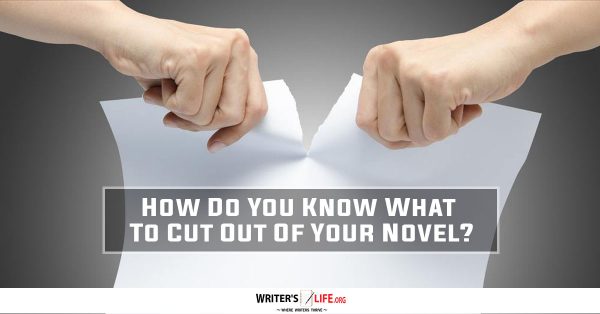- How To Tackle Jealousy In Creative Writing
- Common Submission Mistakes
- How To Stop Your Blog Becoming Boring
- The One Thing Every Successful Writer Has In Common
- How To Make Yourself Aware Of Publishing Scams
- Why Almost ALL Writers Make These Grammar Mistakes At Some Point
- 5 Tips For Authors On How To Deal With Rejection
- Top Mistakes to Avoid When Writing a Novel
- How to Avoid Common New Writer Mistakes
- 10 Mistakes New Fiction Writers Make
How Do You Know What To Cut Out Of Your Novel?

Some writers get really excited about the editing stage of their novel. Others completely dread it. Whatever your take, editing your work is simply part and parcel of being a writer, and so it’s a good idea to try and get as good at it as possible!
As well as carefully going through your manuscript to pick out spelling, grammar and punctuation errors, a big part of the editing process is trying to cut out bits of your writing that aren’t actually enhancing your story. Most first drafts tend to be longer than the finished piece, and while no author should cut out parts of their book just for the sake of it, it is inevitable that there will be some bits that you wrote that can be removed without affecting your story.
It can be difficult to cut parts out of your book. For some it may just be the odd sentence here and there, for others it may be entire chapters. When you have spent so many hours crafting and shaping your story, letting go of certain scenes, and sometimes even characters can feel pretty painful.
Often writers worry that they have read and re-read their work so many times that they could end up removing parts of the story that were actually quite good, but they’ve become so close to their own work, and simultaneously so critical of it that they can’t tell what’s working and what needs to go! The last thing any author wants is to edit their work so much they end up ruining it (this can happen, believe me)!
So how do you know what to cut out of your novel? Here are some ways you can tell what needs to go.
Are you bored by reading it?
There are going to be parts of your book that make your heart race or sing with pride. The parts that get you all fluttery and excited and thinking ‘ this book is actually pretty great.’ Then there are the bits that make your attention wander, that you find yourself skimming over, that make you yawn a bit. If you find yourself a bit bored by what you have written, or skim reading it to get to the next heart-fluttery bit, then really focus on how you can either change what you have written to make it better, or if you could actually cut these bits out altogether. If you are bored reading it, chances are your reader will be too.
Does it make a difference?
Is this sentence, scene, or chapter actually helping to move your story forwards? Does it effect the action in any way? If you took it out would it make any difference to the story? If the answer is no then you know you need to cut it out. Also, look out for where you have painstakingly described a character's actions, i.e. every movement from one room to another - readers don’t need to know everything a character sees and does, so sometimes it’s a good idea to spare them the details.
Is it overwritten?
All writers are guilty of overwriting at some point or another. Look out for this when you go back to edit your work. If it feels too wordy, if the language is too flowery and descriptive, if it’s taken you four paragraphs to describe a teapot - you know you could probably find a more succinct way of getting your point across.
Can you use one word instead of two?
Though this can be a rather slow process, many authors carefully re-read their work to look out for instances where they could use one word instead of two. Often it’s easy to add and an extra descriptive word which actually means the same thing, for example, ‘He was a huge, giant of a man.’ Here there is no need for the word ‘huge.’ Going through your manuscript and cutting out words that aren’t necessary will tighten up your prose and make your book altogether more readable.
Is this what your character would really say and do?
Look out for instances where characters go out of character! It can be easy, when in the writing ‘zone’ to forget that Jim is actually a very mild-mannered man and suddenly have him fly off the handle because someone left the bathroom light on. Make sure that your characters always speak and behave in a way you would expect them to, and if they don’t either rephrase or cut it out altogether.
The best way to understand what to cut out from your novel is to take a step back from it. Leave it for a week or so, get some breathing space and go back to it with a fresh pair of eyes, a difference perspective and ruthless determination to make it the very best it can be.

Bethany Cadman -author of 'Doctor Vanilla's Sunflowers'



























